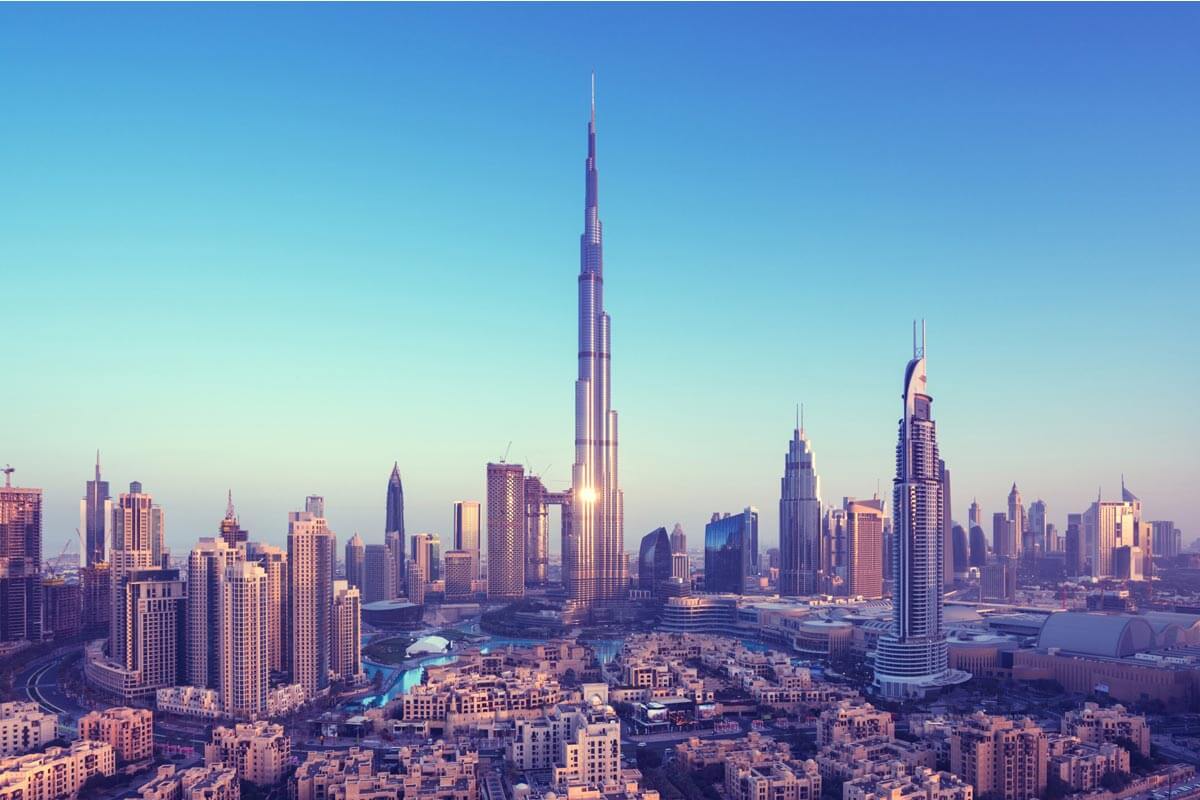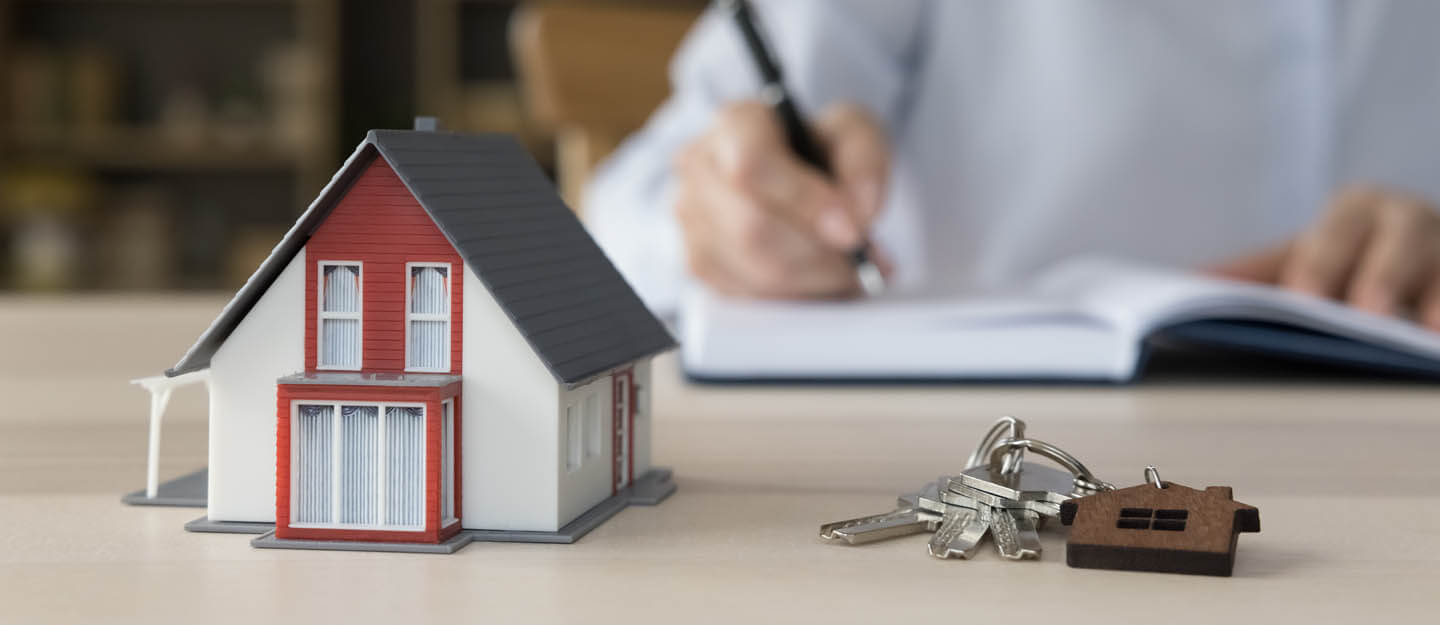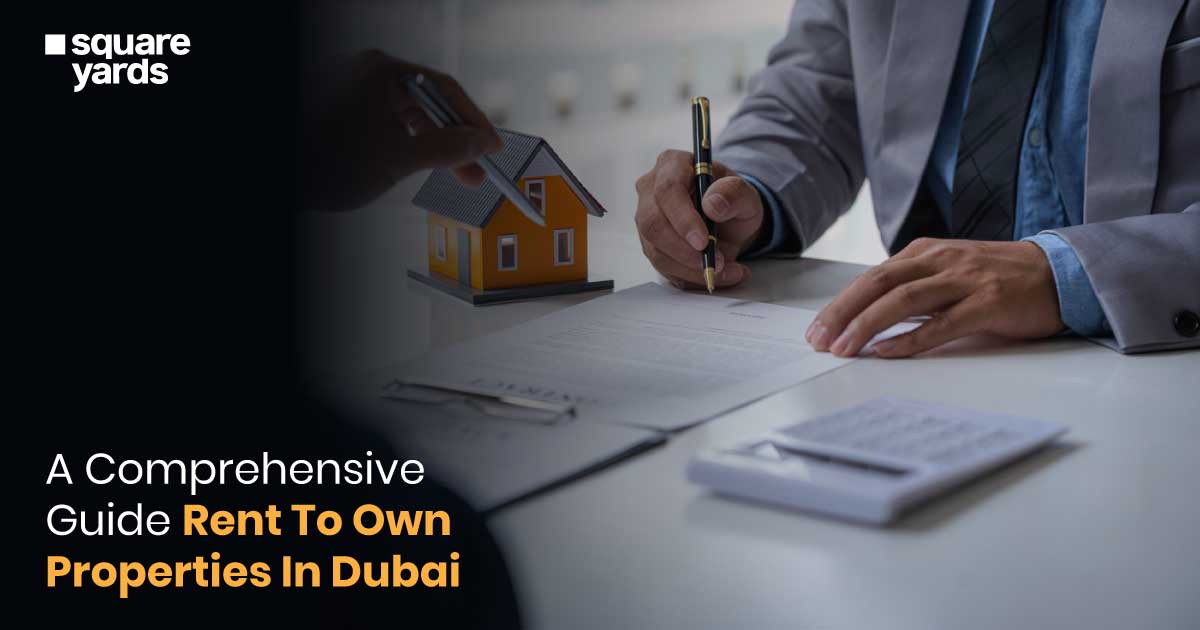Thinking of rent to own properties in Dubai but daunted by the hefty initial down payment? The rent-to-own scheme has come to your rescue, rapidly gaining popularity in the real estate market in Dubai. This innovative tailored program lets you lease your desirable property for a set period of time, with an option of ownership. This feasible financing option saves you from the hassle of assembling an initial down payment. Wondering about the ins and outs of the scheme and the rules that govern it? Dive into this concise guide with all the detailed steps to follow for your dream home-ownership journey.
What Are Rent-to-own Properties in Dubai?
Imagine being able to renting property in Dubai, but instead of your rent merely securing your home, it’s also contributing towards possessing the property in the future. That’s the rent-to-own scheme! The rent-to-own properties in Dubai are primarily crafted for those who dream of owning a home but stumble upon the steep initial down payment hurdle. According to the UAE banking laws, buying a property requires a 20% to 25% down payment. This hefty sum can be a significant financial strain for some buyers, here, entering the rent-to-own scheme, which provides an excellent solution. A portion of your rent (20% – 30% of the property’s purchase price) is paid over three to four years, depending on the agreement between buyer and seller. Once the contract ends, the collected amount serves as your down payment, giving the buyers a significant head-start in the property ownership race.
Difference Between Rent-to-own Vs Lease-to-own
While both rent-to-own and lease-to-own seem quite similar schemes, there’s more than what meets the eye. Rent-to-own in Dubai focuses on accumulating your initial down payment, the first step towards buying your property. It’s for those who find the initial down payment daunting and have their sights set on taking a mortgage. On the other hand, lease-to-own is not about just the initial amount but the entire property value. It includes longer contracts spanning a more prolonged period, often between 7 to 10 years, around which the buyer pays the property cost in equal instalments. However, rent-to-own schemes align with those leaning towards mortgages. In a lease-to-own scheme, the buyer and seller are bound by a Memorandum of Understanding (MOU), ensuring no intervention from third parties like banks.
How to Secure Rent to own Properties in Dubai?

The demand for rent-to-own property in Dubai has hiked as it is a feasible financing option for homeowners and buyers. This option saves you the hassle of hefty down payments. Fortunately, the Dubai Land Department (DLD) provides an array of facilities and services in terms of property matters in the Emirate, which further helps the developers enlist the properties in the initial registry. Here is the complete guide that provides intricate details and requirements to register rent-to-own properties in Dubai.
-
Essential Documents
Below is the comprehensive list of documents that are required for rent-to-own properties in Dubai.
-
-
For Individual Applicants
- Sale and purchase agreement
- Emirates ID for residents
- For non-residents, a passport copy
-
For Business Establishments/Single Proprietorships
-
-
-
- Copy of Business’s commercial licence
- Emirates ID or passport of the licence holder
- A power of attorney is optional
-
For Limited Liability Companies
- Copy of Business’s commercial licence
- Emirates ID or passport of the licence holder
- A power of attorney is optional
- The company’s foundational documents with a legal translation are required in Arabic and certified by the Ministry of Foreign Affairs
- No-objection letter from free zones with one-year validity
- Proof of shareholder certification
-
For International Corporations
- Commercial licence.
- Licence holder’s Emirates ID or passport
- Optional power of attorney
- Copy of foundational documents translated in Arabic and attested by the Ministry of Foreign Affairs.
- Clearance letter from free zones with one-year validity
- Proof of shareholder certification
-
For A GCC Based Firm
- Commercial licence
- Emirates ID or passport of the licence holder
- Power of attorney is optional
- Company’s associated documents, translated into Arabic and validated by the Ministry of Foreign Affairs.
- Proof of shareholder certification
-
-
Procedure to Seal the Deal
- Start with logging into the Oqood Portal.
- Choose the option for ‘Rent to own property registration’ from the service menu.
- Input your financing details and attach the necessary documents.
- Select a payment method that suits you.
- Forward your application online.
- The relevant document will pop up in your email.
-
Understanding the Costs
The following is the service fee included to register rent to own properties in Dubai.
-
- As a Tenant: A small 0.25% of your rent.
- For Buyers: A 2% cut from the sale price.
- For Sellers: 2% of the listed sale price.
- Knowledge fee: AED 10.
- Innovation levy: AED 10
- To self-register on the Oqood Portal, developers are required to pay AED 1,000.
-
How to Settle Your Payment
You can complete your payment using:
-
- Noqodi
- Applicant’s trust account
-
Points to Remember
- The property agreement should entail the signatures of both the developer and the buyer.
- If your buyer is underage, then the guardian is required to sign the agreement, attaching their ID or passport.
- After sealing the deal, there is a 90-day window to get the agreement officially registered.
- Buyers with a decree-holder need to present a letter from the Federal Authority for Identity and Citizenship.
- If you’re leaning on a bank for a mortgage or finance, you need to register a letter detailing the lease.
Understand Tenant-owner Spectrum in Dubai’s Rent-to-own Property Scene

In the real estate market of Dubai, the difference between being a tenant and a homeowner lies within the framework of rent-to-own properties. As per the market, during the initial years of the agreement, buyers are considered tenants for three to four years. This period is a stepping stone as it’s not just about paying rent; it’s about paving the financial path toward your dream home. The process is formalised via a tenancy contract and the Ejari rental agreement, ensuring legal coverage and clarity. The contract mentions property details that these rental payments will be considered against the first deposit. After the rental term finishes, the property purchase will be done, as a normal sale transaction, either through mortgage or cash.
However, subleasing isn’t an option. As rent-to-own properties are tailored for end-users whose name is on the title deed. In addition, the landlord or the seller holds the reins on maintenance, whereas tenants handle the day-to-day wear and tear conditions. Once the contract ends, the responsibility passes on completely to the tenant, making them full-fledged owners. Interestingly, landlords are also benefited, often offering rent-to-own schemes to existing tenants. They set the purchase price at the start of the contract, with the tenant’s regular rental payments making way towards the eventual down payment.
Benefits for Sellers in Rent-to-own Schemes
For sellers, these schemes are about reaping benefits in rent-to-own properties in Dubai. Starting with the ability to command higher sales prices, offering property ownership in exchange for unparalleled flexibility. This scheme attracts a broader demographic of buyers, including those hopeful homeowners who may not have equal finances with traditional purchase methods. The best part of the rent-to-own schemes for sellers is their fail-safe nature. Whether the tenant does not choose to buy the property at the end of the contract, the seller is left undeterred, yielding higher rental returns throughout the term.
What Are the Costs Associated With Rent to own Properties in Dubai?
Some costs associated with Rent-to-own properties in Dubai are as follows:
-
- 0.25% of the rent amount
- 2% of the sale price paid by buyer and seller.
- Knowledge fee is about AED 10
- Innovation fee is approximately AED 10
- Registration fee for developers is around AED 1,000
How Do I Find Rent to own Properties in Dubai?

Dubai’s real estate landscape is continuously evolving to meet the residential needs. Recently, there’s been a notable shift towards rent-to-own homes in Dubai among developers and real estate magnates, adapting to the rising demand for these unique home-buying arrangements. Real estate companies like Emaar are adapting to changing market demands. In addition, Jumeirah Golf Estates and Business Bay are also providing rent-to-own options.
For those who prioritise community living, JVC offers a splendid selection of rent to own properties in Dubai catering to diverse tastes. Alternatively, Al Furjan, nestled in the serene vibes of the Jebel Ali, Dubai area, beckons with its bespoke rent-to-own choices. While Dubai and Abu Dhabi’s real estate hub has taken the lead, other Emirates, such as Ras Al Khaimah, have joined the rent-to-own brigade, providing flexible solutions to the residents. Potential buyers should note that this rent-to-own might come at a slightly higher price – often about 10% to 15% than the standard traditional method. But for many, the convenience of owning your home makes this premium worth it.
What Are the Pros and Cons of Rent to own Properties in Dubai?
-
Pros
- Gradual Ownership: It paves a smooth path to ownership without current heavy down payments.
- Lock-in Prices: Even if property price hikes, the future purchase cost remains the same that is set in the initial agreement.
- Check Community: It allows buyers to experience the community living before fully committing to the property.
- Build Credit: The rental period can provide time to enhance financial savings and credit scores.
-
Cons
- Potential Loss: If not purchased, the collected amount of rent intended as a down payment goes to waste.
- Higher Costs: Rent to own properties might come at a loft price compared to standard property prices.
- Maintenance Disputes: Differences can arise between tenants and landlords over the repairs during the rental phase.
- Locked-in: If property values decrease, buyers may end up overpaying as agreed on the document.
Conclusion
We hope our exclusive guide helps you understand rent to own properties in Dubai. This popular scheme offers excellent solutions for potential homeowners to purchase their dream homes. It provides flexibility and eases the financial pressure of hefty down payments, bringing them a step closer to the path of homeownership. However, buyers must be well-informed and understand the notion of the scheme, its benefits and drawbacks that align with the financial and personal commitments. Are you thinking of investing in Dubai’s real estate market, connect with our experts at Square Yards for all home-buying services.
Recommended for you :
|
Read About Dubai Rental Market |
|
|
Know The Renting Furnished Vs Unfurnished |
|
|
Guide To Hidden Costs of Renting a House |
|
|
All About Buying or Renting Property in UAE |
Frequently Asked Questions (FAQs)
The rent-to-own scheme in Dubai allows buyers to rent a property with the intention of purchasing it. A portion of your rent 20% - 30% of the property's cost is paid over three to four years and goes towards the down payment. At the end of the agreed term, the tenant can purchase the property as the collected amount serves your down payment.
Anyone who can commit to the rent to own properties in Dubai and has the intent to purchase in the future is eligible. Basically, it's ideal for those struggling with immediate down deposits but are confident to buy in future.
Rent-to-own offers a gradual path to seeking ownership without the immediate need for a heavy down payment. It gives time for prospective buyers to improve credit scores, save money, and invest in the property.
If buyers opt out of purchasing, they may lose a portion of the collected amount for the down payment. There's also a threat of disagreement between the buyer and landlord over property maintenance. Also, prices can be slightly higher compared to traditional sales. How does rent-to-own work in Dubai?
Who is eligible for rent-to-own properties in Dubai?
What are the benefits of rent to own properties in Dubai?
What are the risks of rent-to-own properties in Dubai?




